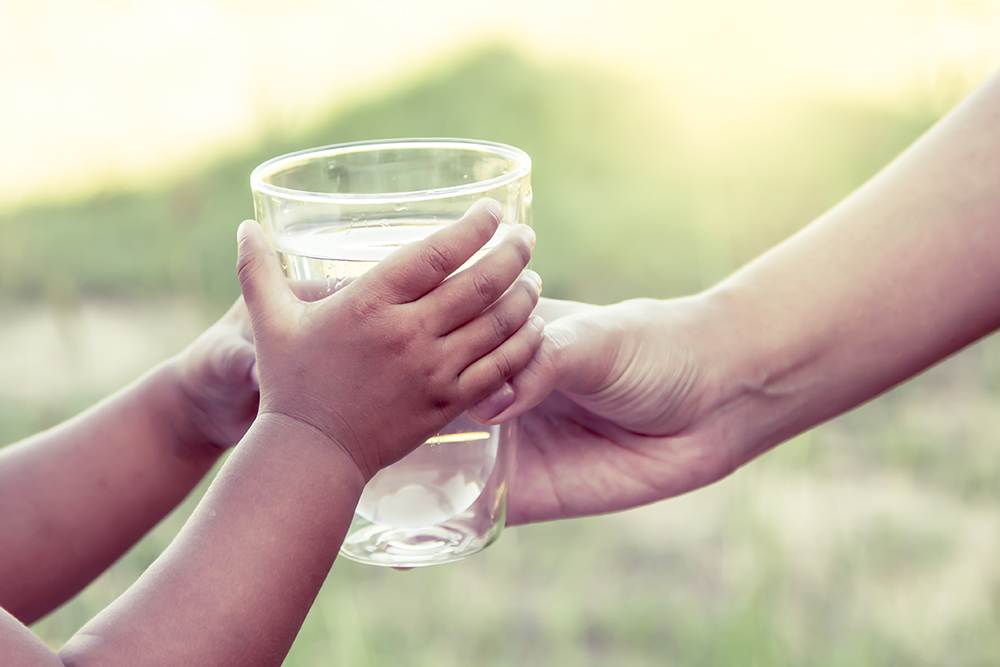
How much water should we consume?
A rule of thumb is ½ ounce per pound of lean body weight. This commonly used estimate is how we get to 8 x 8 oz of water a day but is not based on any science. What we know is that some foods are higher in water content than others. Those foods tend to keep us better hydrated than foods low in water content.
High water content foods included fruits and veggies, and freshly cooked meats. Foods low in water content are cereals, crackers, granola, cakes, cookies, bread, chips, sugary foods, nuts, preserved meats, and hard cheeses.
Consumption of foods low in water content requires more water intake. More activity requires higher intakes. Higher temperatures and dryer air increase water needs.
How does water burn calories?
Numerous studies show that consumption of plain water stimulates the release of adrenaline. This raises our blood pressure temporarily and elevates our resting metabolic rate briefly. It is estimated that 3 x 16 ounce servings of water a day will burn about 50 extra calories a day or 17400 cal a year.
Fluids other than water do not cause this calorie burn. Gatorade, fruit juices, soda pop all add calories to the diet and DO NOT increase resting metabolic rate.
Why should I drink water on purpose? Shouldn’t my thirst tell me when I need fluid?
Unlike most animals the human thirst mechanism has been overridden by social interaction, reward, cooling, warming, and stimulation (caffeine) triggers rather than dehydration. By the time a human feels dehydrated they are significantly behind on fluid. This is especially true of young children and adults over 50.
Moreover, older adults are less likely to drink when dehydrated and more likely not to drink enough when dehydrated compared to young adults.
What metabolic functions require water?
Dumping metabolic waste requires water. Our metabolism generates numerous water soluble compounds that must be unloaded. Our kidney is responsible for dumping this garbage. Water is critical in reducing the accumulation of metabolic waste products.
Moreover, adequate hydration puts less stress on the kidney which becomes increasingly important as we age and lose kidney function.
Physical performance and cognitive performance are compromised in dehydrated states. Kidney stones are much more common in dehydrated states. Blood clots and heart attacks may be more common in dehydrated states.
Our joints and muscles have hydraulic components. They must be well hydrated to function optimally.
Though constipation is commonly spoken of related to state of hydration it may be more important that we consume foods with higher water and fat content to facilitate bowel motility rather than just trying to drink ourselves to pooping.
Start the day out hydrated
I begin each day with 16 ounces of water. I drink two glasses of water back to back no sipping, I guzzle it. This is followed after a morning workout with 8 ounces of green tea and a large meal of meat or fish and veggies. Sometimes there is an additional glass of water in there. So before I get to work I have had 24-32 ounces of fluid on board to dump the garbage from dinner and pressure up all the hydraulic systems in the body.